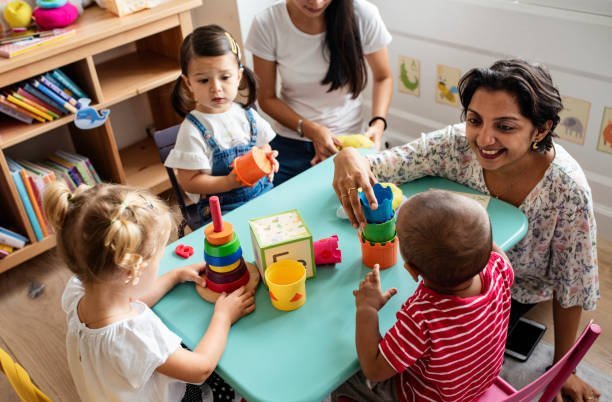Beyond Grades: The Hidden Key to Lifelong Success in Social-Emotional Learning

Story:
Imagine a young child sitting in a classroom, surrounded by classmates. The teacher asks a question, and this child raises their hand eagerly, ready to answer. But before they speak, they pause, glancing around at their peers, ensuring their answer is shared with confidence but also with respect for the group’s dynamics. This child doesn’t just excel in answering questions; they excel in managing their emotions, collaborating with others, and understanding the feelings of their peers. Fast forward to this child’s adult life. They navigate professional and personal challenges with resilience and empathy, able to connect, lead, and thrive in social settings.
This story, while fictional, illustrates a core finding from a groundbreaking study that followed kindergarteners’ behavior into adulthood: social success in childhood can be just as important as academic success for long-term prosperity. The study highlights the impact of social-emotional learning (SEL)—the ability to understand and manage emotions, form positive relationships, and make responsible decisions.
Senses: Child Safeguarding and Protection Principles:
The core principles of child safeguarding and protection emphasize the right of every child to grow up in an environment that nurtures their physical, emotional, and social well-being. SEL plays an integral role in this by teaching children how to interact with others in healthy, constructive ways. Skills such as empathy, communication, and self-regulation are essential to creating an environment that protects children from harm, both physically and emotionally.
A child who is equipped with social-emotional skills is less likely to engage in harmful behaviors such as bullying or isolation, both of which can have severe consequences for mental and physical health. Furthermore, children who develop emotional intelligence are more likely to seek help when they face difficulties, whether at school or at home. This proactive engagement is a vital aspect of safeguarding, ensuring that children know how to recognize their own emotions, seek support when needed, and respect the emotions of others.
Stones: Child Safeguarding Lessons for Parents, Government, and Society:
- For Parents: Parents play an essential role in nurturing their child’s emotional intelligence. Encouraging open communication, teaching empathy, and modeling how to handle frustrations and conflicts can provide a foundation for a child’s future success. Parents who engage in their child’s social development help them create a more balanced and supportive learning environment at home, which reinforces the importance of SEL in school.
- For Government: The government has a critical role in integrating SEL into the educational curriculum. This can be done by funding programs that focus on both academic and emotional development, ensuring that teachers are trained in social-emotional learning strategies. By embedding SEL into the education system, we can equip future generations with the skills they need to handle interpersonal relationships and societal challenges more effectively.
- For Society: Society must recognize that success is not just defined by academic achievement. A focus on social-emotional development helps build communities that are more empathetic, resilient, and collaborative. These qualities are crucial for addressing complex societal issues, such as mental health, inequality, and social cohesion. When children are taught to value social connections and emotional growth alongside academic success, they are better prepared to contribute positively to society.
Conclusion: The study of kindergarteners’ social interactions and their long-term success proves that academic performance alone does not guarantee prosperity. Social-emotional skills—such as managing emotions, working collaboratively, and showing empathy—play an equally important role in shaping a child’s future. Parents, schools, and society as a whole must work together to prioritize these skills, ensuring that children grow up in environments that nurture both their cognitive and emotional development. By doing so, we set the foundation for not only successful students but also successful, well-rounded individuals who can navigate the complexities of adulthood with resilience and empathy.
Source of image: Getty Images




